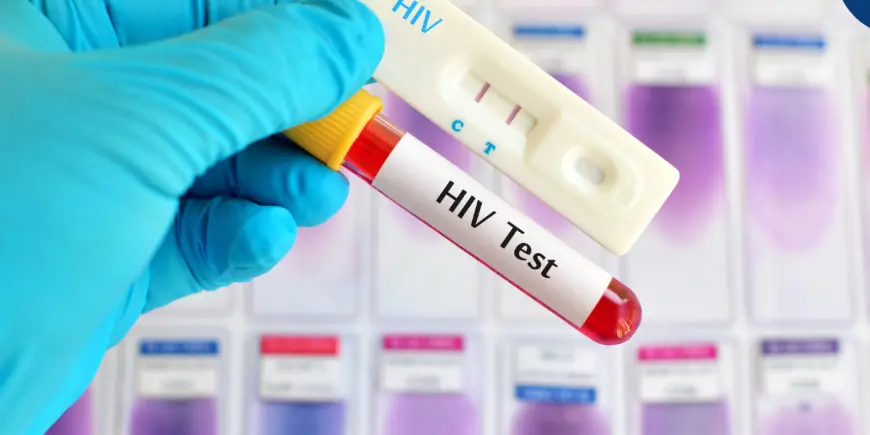How much time can someone with HIV live?

A person with HIV may now expect to live a far longer life than they did a few years ago. Antiretroviral treatment (ART) advancements make it possible for many HIV-positive individuals to live longer lives. It would help if you thought about private HIV tests to detect the issue.
HIV was a potentially fatal illness when the 1980s saw the first reports of HIV and AIDS. As long as they stick to their therapy, patients may now manage HIV as a chronic health condition. This blog looks at the life expectancy of HIV-positive individuals, advancements in HIV care, and the long-term prospects.
Life Expectancy for HIV
The life expectancy of those living with HIV, both with and without treatment, is as follows, according to studies. The high CD4 counts have long-term HIV therapy longer than average people.
The body has an immune cell type called CD4. HIV attacks and destroys these cells. Therefore, a high CD4 count indicates optimal immune system function. However, according to the cohort research, those with low CD4 levels are up to 30 years younger than the population.
Life Expectancy Without the Treatment
The life expectancy of HIV-positive individuals who do not receive treatment reduces the problem. People usually only live for three years after being diagnosed with AIDS. When there were no medications available in the early stages of the HIV pandemic, many people lived for only a year or two after being diagnosed.
Latest Improvement in HIV Treatment
Improvements in therapy are the reason why people living with HIV are living longer. Antiretroviral therapy started as monotherapy in the 1980s, with the dual therapy in the 1990s. There is now combination antiretroviral therapy (ART), which consists of three or more medications that target HIV differently.
Even though HIV medication is far more successful now than it was in the past, scientists are still working to find a cure. Combination antiretroviral therapy (ART) can protect health in the interim by lowering blood HIV levels. HIV becomes undetectable if the viral load falls below a certain level. When this occurs, there is no chance of HIV transmission through sexual contact.
Additionally, less than 1% of women experience transmission during pregnancy or delivery while using ART. Although it is far less common, breastfeeding and sharing needles still carry some risk of transmission.
Complications of HIV
HIV can swiftly begin to harm immune system cells if medication is not received. It develops gradually. They are as follows:
● Stage 1: The acute phase of HIV is another name for it. Although some people have no symptoms, it frequently starts with flu-like symptoms. The blood has a high concentration of viruses, which can quickly spread to others.
● Stage 2: There are no symptoms during this chronic period. However, the virus is still spreading, and individuals can infect others.
● Stage 3: AIDS is another name for HIV. This happens when a person's immune system cannot defend them against infections due to viral levels in the blood.
As HIV spreads, it can cause:
● Severe bacterial, fungal, or viral infections
● Substantial unintentional weight loss, often known as wasting syndrome
● The resuscitation of herpes viruses and other latent viruses in the body
● Certain malignancies, including lymphoma
Side Effects of Medicine
Antiretroviral drugs can have both short- and long-term adverse effects, even while HIV therapy can save lives. The private HIV test can help you understand the problems. The adverse effects are often milder than they used to be, although not everyone suffers. The most typical adverse reactions consist of:
● Fatigue
● Dry mouth
● Rash
● Pain
● Vomiting
● Diarrhea
● Dizziness
● Insomnia
● Headache
Sometimes, adverse effects to the limit of the first few days or weeks of taking a medicine disappear. The majority of side effects are tolerable, but patients should see a doctor if they worsen or make them wish to quit taking ART.
Certain diseases may become more likely if ART is for the long term. Depending on the medications a person is taking, the consequences might include:
● cardiovascular disease
● liver disease
● kidney disease
● osteoporosis
Age Factor with HIV
ART has significantly increased the longevity of HIV-positive individuals. As a result, those with the virus may encounter health problems similar to those of other senior citizens.
Even after treatment, the virus may still impact ageing and health. Long-term HIV infections in older adults can lead to the development of related health issues, like:
● Cancer
● Diabetes
● Kidney disease
● Cardiovascular disease
There might be several reasons for this, but one of them could be HIV-related chronic inflammation.
Bottom Line
HIV-associated neurocognitive dysfunction is a disorder that is linked to HIV and its treatment, and it affects the brain (HAND). Distinguishing between HAND and Alzheimer's disease is a developing problem among older adults who are HIV-positive.
Investigating these consequences is still being done.
For the time being, people living with HIV must follow their medication regimen to maintain viral suppression and take charge of their health. Find a reliable sexual health clinic in London, like STI Clinic London.

 events
events 










